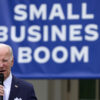For all of candidate Barack Obama’s campaign rhetoric promising to respect Congress’s authority to draft the nation’s laws, President Obama has demonstrated a persistent pattern of circumventing the legislative branch via administrative fiat whenever his agenda stalls. And though one of the Obama campaign’s legal advisers cautioned against a President who would “take the law into his own hands and shred it when it’s convenient,” Obama has done just that time and time again.
The Obama Administration generally employs one of two strategies to legislate without—and often in spite of—congressional action: (1) administrative decree establishing a new federal rule, or (2) a refusal to enforce existing federal law. In five separate policy areas, the President and the federal agencies under his command have spurned congressional authority to achieve Obama’s objectives.
1. Environmental Regulation: President Obama has made it his mission to impose economy-killing environmental regulations on America in spite of clear congressional opposition. Take the White House–backed cap-and-trade bill, which would have created a market for “carbon credits” that businesses would have to trade in order to emit carbon dioxide and other greenhouse gasses.
The measure passed the House in 2009 but was defeated in the Senate. Undeterred, the Obama Administration sought to ram its agenda into law without congressional approval. It managed to classify carbon dioxide as a “pollutant” under the Clean Air Act, thereby granting the Environmental Protection Agency the authority to regulate its emission—despite warnings even from Members of Congress who wanted to regulate carbon emissions but recognized the problematic nature of doing so without congressional approval.
2. Labor Law: Expanding powerful labor unions is another Obama Administration objective. On June 21, the National Labor Relations Board (NLRB) announced plans to dramatically reduce the time to conduct unionization elections.
But in 2009, the Senate moved in the opposite direction. It removed the “card check” provision from the misnamed “Employee Free Choice Act,” effectively sinking a measure that could have dramatically increased union membership by rescinding workers’ rights to a secret ballot election for union representation.
The NLRB’s new rule will reduce the length of elections from about six weeks to 10–21 days, thereby limiting employers’ abilities to present their own cases against unionization to workers—and making the formation of a union far more likely. Increased unionization was always card check’s purpose. The NLRB is now attempting to achieve the same goal without Congress’s approval.
3. Immigration Law: On immigration policy, the Obama Administration has not even waited for congressional action before charting its own legislative course. In May, Democrats reintroduced the DREAM Act—which would provide a path to citizenship for illegal immigrants who came to the United States before they were 16—after the lame-duck Congress failed to pass it late last year.
But rather than waiting for Congress to act, officials at Obama’s Department of Homeland Security have instructed Immigration and Customs Enforcement agents and attorneys to exercise “prosecutorial discretion” for illegal immigrants who have attended school in the United States, meaning far fewer such illegal immigrants will be prosecuted and deported. The agency cited a shortage of resources, but the decision amounts to a de facto implementation of the DREAM Act.
4. Selective Enforcement of Federal Law: Rather than push Congress to repeal federal laws against marijuana use, Obama’s Justice Department decided in 2009 that it would simply stop enforcing those laws. Proposals to legalize marijuana at the federal level consistently fail to win congressional approval, but the Obama Administration decided to implement its agenda in spite of that lack of legislative support.
The Justice Department again employed this tactic in February when it announced that it would no longer enforce another federal law: the Defense of Marriage Act. The Administration did not agree with the law, so rather than attempting to repeal it via the standard legislative channels, it decided to ignore it.
5. Regulating the Internet: Obama’s Federal Communications Commission (FCC) decided late last year to assume authority over Internet regulation despite a ruling by a federal appeals court explicitly denying the commission that authority. In contradiction of the court’s ruling, the FCC voted 3–2 in December to pass the first-ever federal regulations on Internet traffic. The House has voted to block those regulations, but Obama has pledged to veto any such legislation.
More Bureaucratic Legislating Ahead: All of these examples demonstrate a striking lack of respect for the role of the legislative branch in American government. Despite paying lip service to Congress’s constitutional role as the sole source of the nation’s laws, the Obama Administration has ignored Congress wherever the people’s representatives have declined to codify his agenda.
Nor is there any sign of this trend abating. Even now, the President is considering a number of proposals that would advance his legislative agenda without congressional consideration or approval, including re-regulation of campaign finance laws to circumvent a Supreme Court decision and waivers of the No Child Left Behind law in the face of congressional inaction.
Following the November elections, when President Obama’s party lost control of the House, Obama told America that where he can’t legislate, he will regulate. And that seems to be this Administration’s modus operandi: If Congress refuses to abide by Obama’s agenda, the President’s bureaucratic machine will make its own laws.
Quick Hits:
- At least 11 are dead from a Taliban attack on the Intercontinental Hotel in Afghanistan’s capital Kabul on Tuesday. U.S. forces aided in the response.
- Amid violent protests, Greece is poised to pass $40 billion of tax increases and spending cuts in order to secure $17 billion in emergency loans from the International Monetary Fund.
- Bank of America will pay $8.5 billion to settle a dispute with 22 investors who lost money on mortgage-backed securities they purchased from the bank.
- California’s legislature passed a budget last night that includes a series of spending cuts to address the state’s deficit. Critics say the plan doesn’t tackle unfunded pension liabilities.
- VIDEO: In an exclusive interview, Sen. Kay Bailey Hutchison (R-TX) criticized liberals for opposing Social Security reform, warning that they would rather increase taxes on businesses.




























